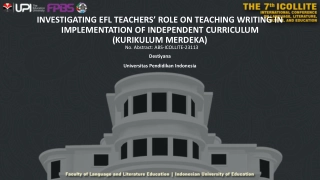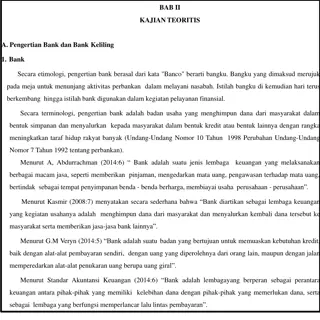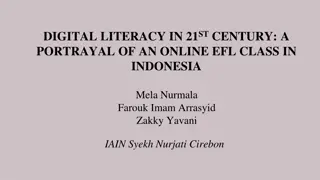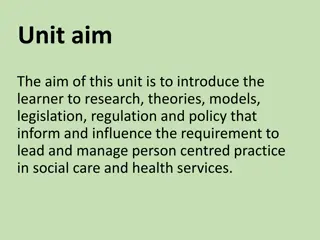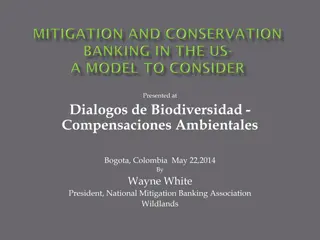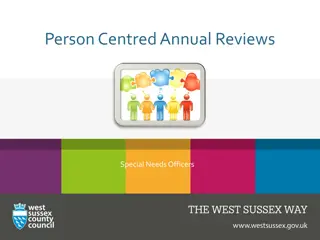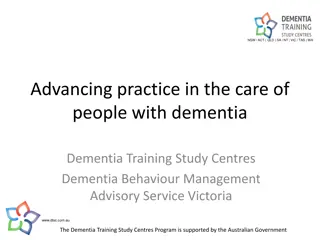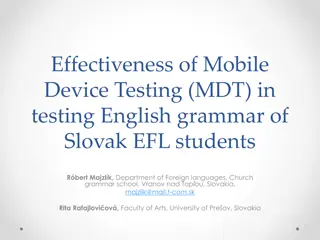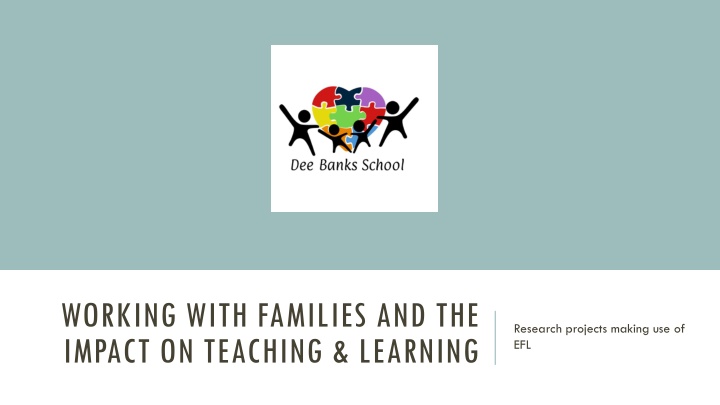
Impact of Family Engagement on Teaching and Learning Projects
Explore research projects utilizing EFL to enhance teaching and learning outcomes through increased parental involvement. Discover the importance of sharing with families, building strong relationships, and promoting mutual appreciation for achieving academic success. Learn about a project focused on improving personalized education by fostering parental engagement in progress sharing between home and school.
Download Presentation

Please find below an Image/Link to download the presentation.
The content on the website is provided AS IS for your information and personal use only. It may not be sold, licensed, or shared on other websites without obtaining consent from the author. If you encounter any issues during the download, it is possible that the publisher has removed the file from their server.
You are allowed to download the files provided on this website for personal or commercial use, subject to the condition that they are used lawfully. All files are the property of their respective owners.
The content on the website is provided AS IS for your information and personal use only. It may not be sold, licensed, or shared on other websites without obtaining consent from the author.
E N D
Presentation Transcript
WORKING WITH FAMILIES AND THE IMPACT ON TEACHING & LEARNING Research projects making use of EFL
WHY SHARE WITH FAMILIES? OUR WISH LIST to share and celebrate together their child as a successful learner and in doing so creating frequent, positive opportunities to work with families and build strong, trusting relationships. to provide a window into the world of school, the curriculum on offer and what the child gains from this, building an understanding over time that would be difficult to achieve any other way and likewise for home! to promote engagement sharing interests and motivators between home and school to promote the generalisation of skills between home and school to model strategies/ approaches/ use of equipment and resources to support finding the missing pieces of the puzzle e.g. what does he mean by this? Why does this behaviour occur? to provide evidence of achievements and progress supporting discussions to determine next steps/ appropriate level of challenge for achieving potential mutual appreciation and recognition of everyone s contributions which serves as the best encouragement and motivation to keep doing more!
NPQH PROJECT AIMS: To improve personalised teaching and learning through increased parental involvement in receiving and sharing progress information between home and school.
PROJECT OVERVIEW The project ran for two terms from September 2019 until March 2020. Letters had initially been sent out during the Summer Term 2019 to encourage parents to provide details to set up an EFL account. 42% of parents engaged at this stage and this was used as baseline data. The number of parents accessing an account and the number of parents logging in and the frequency of this was monitored. The average number of gains using the Assessment of Lateral Progression (Mapping & Assessing Personal Progress) was measured and pupil progress reviewed in relation to parental engagement with EFL.
ACTIONS TO INCREASE PARENTAL ENGAGEMENT Review which parents do not have accounts and contact these parents (letter, home-school books, phone calls) Ensure this is promoted by a team of staff who can both encourage and provide practical support for families e.g. FSW, admin Built into teacher appraisals whole school pupil attainment objective. Teachers considered best way to engage parents in own class group and understand the expectation for them to promote parental engagement. A clear success criteria agreed. Work with Assessment and Accreditation co-ordinator to arrange drop-ins across the school to look at how evidence is gathered and shared with parents. Feedback provided to a range of staff and TAs supported where needed. Arrange support sessions for identified staff to increase confidence and ability in using the system to share evidence with parents and respond to parent contributions. Monitor parent log ins and contributions at regular intervals using EFL console Discuss impact of parental contributions and plan next steps for individual pupils during termly Reviewing and Planning meetings with each class teacher and department leaders. Assess the impact of sharing progress information on generalisation aspect score for individual pupils e.g. is there evidence of targeted skills being generalised to the home setting and family members as well as school staff? Share evidence at parent meetings/ annual reviews to demonstrate the system and entice parents to log in Move to termly reporting against Personalised Plans and make clear to parents in these evaluations that EfL is now a significant part of our reporting and provide details of how to access help if they need it to log on. We also planned to run some parent events e.g. coffee mornings and workshops during the Spring Term which did not take place due to the pandemic.
CHALLENGES ENCOUNTERED Perceptions and confidence of all staff in contributing to evidence and interacting with parents Difficulty in getting all parents to respond and provide details Technical knowledge and confidence of parents most use mobile phones to access and many needed support
PROJECT DATA Baseline (July 2019) End of Spring Term 2020 End of Summer Term 2020 % of parents with EFL accounts (those who had responded to requests for email addresses to set up an account) 42% 95% 95% % of parents who had logged on to their child s EFL learning journal 29.7% 72% 66% % of parents who have logged on weekly or more 5.4% 18% 28.8% % of parents who upload and share evidence of their child s learning at home 1.8% 41.4% 48.6%
Average scores for increases in the Generalisation aspect and also across all aspects were calculated for each term as follows: Summer Term 2019 Autumn Term 2019 and Spring Term 2020 Average increase in Generalisation 3.76 2.87 Average increase across all aspects 3.4 3.4
A further analysis of the percentage of pupils making above average progress in the Generalisation aspect and overall (across all aspects) in relation to their parents/ carers being in the high engagement or low engagement group was carried out. High Engagement Group (log on weekly or more and/ or submit evidence of learning at home) Low Engagement Group (log on less than weekly and do not submit evidence of learning at home) % pupils with above average increases in Generalisation 45% 41% % pupils with above average increases across all aspects 45% 35%
THE IMPACT OF THE PANDEMIC & WHAT HAPPENED NEXT We have continued our work to increase and improve working with families to support pupils to fulfil their potential. class teachers reviewed engagement with their families in the Autumn Term and information/ support was provided again wherever needed (resetting passwords/ letters/ notes home/ phone calls etc.) Opportunities taken to prompt and encourage parents to log on document developed to share with all staff around the importance of gathering evidence and what we use this for discussed at staff meetings and raised as particularly important at the current time as parents can not visit school and EfL is all they have our how to guide for EfL revised and used to support less confident or new staff Some class teachers doing more focussed work around his to support their families over to Ashleigh!
ABOUT MY CLASS I have a class of 7 children, 6 boys and 1 girl. All of the children have a diagnosis of Autistic Spectrum condition and Severe learning difficulties. From this some of the children also have ADHD, exhibit challenging behaviours, have sensory processing difficulties and are non-verbal. When looking at their home lives, they all greatly vary. Some are only children whilst others are 1 of 9 siblings. Some have 1 parent whilst due to modern family set ups, some have 4 parents. We also had 6 out of 7 children with at least 1 parent registered to access EfL, however there was minimal engagement across the class with few parents logging in and no families were submitting evidence from home.
WHY DO I FEEL IT IS IMPORTANT TO IMPROVE LINKS WITH FAMILIES IN MY CLASS? To address different levels of expectation between home and school which may impact on the child achieving their potential To provide evidence of the level at which the child is working and what work takes place to support this To improve confidence of parents and families in teaching their child skills To help parents understand what helps their child e.g. engaging activities/ calming strategies which may be of use at home Overall to improve quality of life for the child and all of the family
HOW AM I USING EFL TO BUILD POSITIVE WORKING RELATIONSHIPS WITH MY FAMILIES? Parents have been informed that evidenced will be uploaded routinely (every few days) Prompt parents to log in (via home school book) at least every two weeks. When a Wow! moment has been recorded, mention this specifically in the home/ school book Monitor the parent log and identify parents not logging in regularly. Encourage these parents specifically through recording more evidence of their child which may motivate them (e.g. Wow! moments) Prompt parents to upload evidence from home during the holidays
WHAT HAVE I LEARNT FROM WORKING WITH FAMILIES? Parents are often unsure about how to help their child Parents can be worried about being judged by other professionals in school Parents appreciate a balance of evidence between educational achievements (e.g. linked to personalised goals) and seeing their child happy in school. Some parents view their own use of EfL as just a way to share news rather than an opportunity to collaborate on teaching life skills. Parents are more likely to engage and collaborate when evidence reflects what they consider to be important in the curriculum swimming days often prompt parents to log in! Responding to parents promptly and positively when they upload evidence or make comments motivates them to continue to engage. We still have work to do around our parent s understanding of the curriculum (life skills) and the part they can play in supporting this
OUTCOMES SO FAR all 7 parents now have accounts 5 parents log in regularly and also upload evidence from home an improvement in independence skills has been observed with ability to maintain tasks after a holiday/ break has increased there has been an increase in parents requesting resources used in school/ information about how to get resources e.g. symbols, visuals, chewable toys, sensory resources etc. after viewing evidence. agreed expectations achieved for some learning intentions between home and school (particularly in relation to independence). Children have responded positively to this and seem happy and more settled.
MOVING FORWARD Continue to work with all staff around the importance of collaborating and sharing with families through EfL and embed this into our daily practice. Continue to work on achieving a balance between the quality of evidence (for the purposes of assessment and planning) and considering what families value often this is linked to Wow moments e.g. communication, swimming, feeding skills, trying new foods and offsite experiences. Our efforts in encouraging families to engage has hi-lighted our concerns about some children and families, the barriers they face in supporting their child and how we can help them. Use of EfL has added another dimension to our relationships with parents, providing an invaluable insight into life at school and life at home. This must further drive our ability to personalise and tailor the curriculum to meet the needs of every learner.

